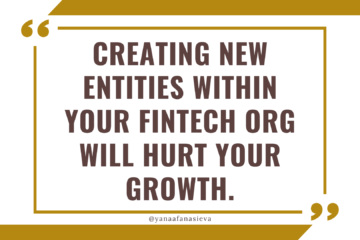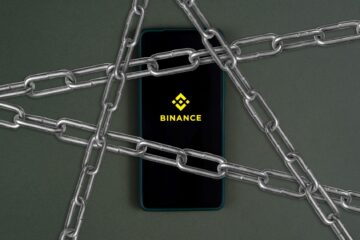FinTech Co-founders: When Friendship Becomes A Problem
Today, I wanted to share with you my thoughts about FinTech co-founders who are also best friends and how it may become a problem for the company and the team.
You often hear that the best startups are launched by founders who already worked together before, and when one of them ideally can sell and another one can build. This ideal case, however, assumes that both founders are equally qualified and great at what they do.
What often happens, in reality, is that one of the founders would be an amazing, talented, driven entrepreneur (often the CEO), and they would invite their best friends to join this new venture and become co-founders and act as members of the OG executive team because they trust their friends, they like being around them, they enjoy bouncing off ideas together, they often even live in the same buildings, and they have known each other for ages.
The problem, however, is that these friends are not necessarily qualified for the job and if it would not for the friendship, these individuals would never get a similar job and have little chance of being successful. They have some exposure to the area they are asked to lead, but they are not fully up to the task.
I read the book about the early years of PayPal written by Jimmy Sony “The Founders: The Story of Paypal and the Entrepreneurs Who Shaped Silicon Valley”. PayPal history is often quoted as a classic example of co-founders exceptionally good at their craft, exceptionally entrepreneurial, who remained friends over decades and co-founded many more companies after PayPal.
My personal observation is, however, that PayPal’s story is an exception and not the norm.
Here is what I see time and time again:
- When one of the co-founders is not fully competent, they often hope that they would be able to hire people into their team who would be able to compensate for the lack of skills, know-how, and missing experience. It sounds logical, however, A-players in the startup world don’t want to work for B-leaders. They often challenge the status quo and then they just leave.
- I have never seen a case where the shortcomings of one of the co-founders were successfully compensated by someone within their team. Quite the opposite – you will quickly see a lot of churns and a lot of complaints and a lot of gossip about how one of the co-founders is incompetent and unfairly protected by their CEO friend.
- There will be a growing tension between the members of the executive team because they know they cannot fully count on one of the co-founders to deliver a good job, they know there are many secret conversations and secret planning going on between friends, where not everyone is invited, and ultimately, any budget or hiring decision initially made by the Exco can be overruled by the circle of friends later.
- In fact, most members of the executive team must walk on eggshells because it is obvious that you cannot really speak up openly about the lack of qualifications of one of the co-founders. Friendship will always prevail… until it fails…
- Friend co-founders rarely sign any formal shareholder agreement, so at some point (usually when the company is running out of money, in the middle of fundraising, or after a big loss of an important client…) there is a fundamental disagreement leading to a big ugly breakup.
- Alternatively, the friends can drag along together until the first exit when an external board of directors is established. B-player co-founders rarely survive the series A stage.
Have you observed the co-founders’ dilemmas? What has been your experience?
Don’t miss this fresh episode on Compliance That Make Sense podcast today! Tap this link to start listening!





